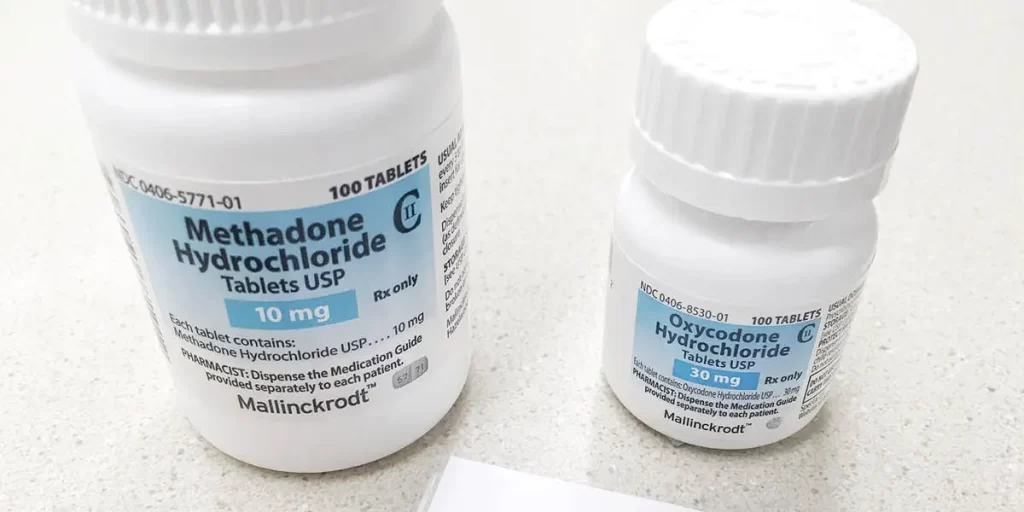Methadone Addiction: Symptoms, Signs and Side Effects

Methadone is a narcotic used to treat moderate to severe pain. It is also used during medication-assisted treatment for people who are addicted to heroin and other opiates.
When methadone is taken as prescribed, it can be an effective way for people to reduce and eventually eliminate heroin and narcotic pain medicine abuse. For the best results, it’s recommended that patients also seek a comprehensive medication-assisted treatment program that also includes counseling and social support for those struggling with addiction.
Though often used to treat opiate addictions, methadone itself can be addictive and easily abused if not taken as prescribed. Methadone symptoms include:
- Dizziness
- Vomiting
- Nausea
- Drowsiness
- Confusion
- Sweating
- Slowed breathing
- Constricted pupils
- Constipation
The first time someone takes methadone, they often experience dizziness paired with a powerful high. Addiction can occur when people take higher doses than recommended to continue feeling that high.
That’s why it’s extremely important to only take the drug as prescribed. Often, the amount prescribed is very specific to each. If a person is worried that they, or someone they know, is addicted, there are some symptoms and signs of methadone abuse that they can look out for.
Symptoms of Methadone Abuse
Drugs affect everyone in different ways. Because everyone’s physical and mental health is unique, one person may experience certain symptoms from using a drug while another person may experience no symptoms at all. Those differences extend to drug use behavior as well. However, there are some common behaviors to watch out for when drug abuse or addiction is suspected. Some signs and symptoms of methadone abuse include:
- Taking doses higher than what was prescribed
- Taking methadone more often than it was prescribed
- Trying to obtain the drug from sources other than a healthcare provider
- Trying to obtain prescriptions from multiple healthcare providers
- Experiencing withdrawal without the drug
- Losing interest in other areas of life
Side Effects of Methadone
Methadone can cause serious side effects, even when taken as prescribed. The first time people take methadone, they often experience immediate dizziness. This sense of dizziness is often paired with feelings of nausea and confusion.
Other methadone side effects include:
- Difficulty breathing or shallow breathing
- Dizziness
- Drowsiness
- Headaches
- Nausea or vomiting
- Sweating
- Dry mouth
- Loss of appetite
- Weak muscles
- Constipation
- Problems urinating
- Missed periods
- Sexual problems
- Weight gain
- Decreased reaction time
- Difficulty concentrating, falling asleep or staying asleep
More serious side effects can occur including seizures, hives, difficulty breathing, fainting, chest pain, rapid heartbeat, hallucinations and swelling. Contact emergency services right away if these side effects occur.
Signs of Methadone Overdose
Methadone is easily addictive and can lead to overdose. People who have built a tolerance to methadone keep taking more to achieve the high they experienced when first taking it. Overdosing on methadone is common for a number of reasons: it has a long half-life, it is dangerous to take with other painkillers and people mistake their tolerance level for the drug.
Even when taken as prescribed, it’s possible to overdose on methadone since the drug builds up in the body’s system over time. In some cases, it may take up to 10 hours for symptoms of an overdose to appear.
Signs of a methadone overdose include:
- Tiny pupils
- Cold, clammy skin
- Blue fingernails and lips
- Confusion
- Disorientation
- Fatigue
- Coma
- Constipation
- Vomiting
- Nausea
- Muscle twitches
- Stomach or intestinal spasms
- Weakened pulse
- Low blood pressure
- Labored breathing
Call emergency services right away if you suspect a methadone overdose. If you live with a methadone addiction, contact The Recovery Village Ridgefield today to speak with a representative about getting the treatment you deserve. Addiction treatment at The Recovery Village Ridgefield addresses not only the addiction but any co-occurring mental health disorders. Take the first step toward a healthier future by calling today.
View Sources
Substance Abuse and Mental Health Services Administration. “Methadone.” May 1, 2019. Accessed June 3, 2019.
Heller, J. “Methadone Overdose.” U.S. National Library of Medicine, September 23, 2017. Accessed June 3, 2019.




